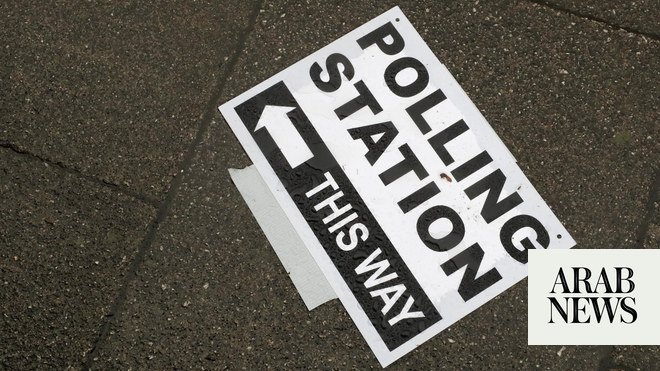
The sudden death of Ebrahim Raisi in a helicopter crash last month has precipitated an early presidential election in Iran, which is now set for June 28, 2024, instead of the originally planned June 2025. With the intricate interplay of domestic and foreign policies hanging in the balance, the outcome of this election will be critical for the trajectory of the Islamic Republic. As the country braces itself for this significant political event, it is essential to examine the implications for both the Iranian populace and the broader international community.
At the heart of Iran’s political landscape lies Supreme Leader Ali Khamenei, whose authority supersedes all others in matters of domestic and foreign policy. However, the role of the president cannot be underestimated. The president serves as the face of the administration, setting the tone on the international and regional stages and within the country itself.
While Khamenei’s objectives guide the broader strategy, the president’s interpretation and implementation of these goals are crucial. This dual leadership dynamic underscores the importance of the upcoming election, as the winner will play a significant role in facilitating and executing the supreme leader’s vision.
For the senior cadre of the Islamic Revolutionary Guard Corps and the supreme leader, it is imperative to have a president who aligns perfectly with their objectives. The president’s stance on key issues, such as Iran’s nuclear program, regional relationships and international agenda, must resonate with the strategic goals set by Khamenei and the IRGC. From their perspectives, any deviation or questioning of these objectives could lead to internal discord and weaken Iran’s position both domestically and globally. Therefore, the upcoming election is not merely about choosing a president, but also ensuring the continuity of a unified and consistent policy direction.
While Khamenei’s objectives guide the broader strategy, the president’s interpretation and implementation of these goals are crucial
Dr. Majid Rafizadeh
The significance of the next president is further amplified by the advancing age of Khamenei. Historical precedent shows that the president could succeed the supreme leader upon his death, just as Khamenei succeeded Ayatollah Khomeini. This potential transition adds a layer of urgency to the election, as the victor might eventually become the supreme leader. The implications of this are profound, as it could shape Iran’s long-term policies and its approach to international relations. Therefore, the electorate’s choice in the upcoming election will be pivotal in determining the future direction of the country.
Presidential elections in Iran are managed by the Guardian Council, which has the power to disqualify candidates. The 12 members of the Guardian Council are appointed by the supreme leader either directly (six members) or indirectly (the other six are nominated by the head of the judiciary, who is himself appointed by the supreme leader), ensuring that its decisions align closely with the supreme leader’s preferences and the ideological principles of the Islamic Republic.
This body plays a critical role in shaping the electoral landscape, as it determines who can run for the presidency. For example, despite constitutional provisions allowing women to run, the Guardian Council has consistently disqualified female candidates. It previously even banned Hassan Khomeini, a grandson of the founder of the Islamic Republic, from running for a seat in the Assembly of Experts. He was referred to as a reformist. This example highlights the stringent vetting process and the emphasis on ideological purity and loyalty, ensuring that only candidates who are unwaveringly aligned with the supreme leader’s vision and revolutionary ideals are allowed to run for office.
The Guardian Council’s loyalty to Khamenei is evident in its actions. It disqualifies anyone whose loyalty to the Islamic Republic is questionable or whose religious and political values do not align with the ruling leadership. The council’s influence is pivotal in maintaining ideological consistency and stability within the leadership and preventing potential shifts or challenges to the established order.
The question of the supreme leader’s succession remains unresolved, adding another layer of complexity to Iran’s political future
Dr. Majid Rafizadeh
Several individuals have already applied to be on the ballot for this month’s presidential election. A final list of candidates is expected to be released by the Guardian Council next week. Some of the prominent candidates include Saeed Jalili, a member of the Expediency Discernment Council and former secretary of the Supreme National Security Council; Ali Larijani, a member of the Islamic Consultative Assembly and former speaker of the parliament; Mohammed Bagher Ghalibaf, the current speaker and a former mayor of Tehran; and Mahmoud Ahmadinejad, a member of the Expediency Discernment Council and former president.
The Guardian Council will likely approve Jalili, Ghalibaf and Larijani. These candidates are expected to pass the council’s vetting process due to their demonstrated loyalty to the supreme leader and adherence to revolutionary ideals.
Despite the earlier belief that Raisi was poised to succeed Khamenei, it is unlikely that any of the current presidential candidates will be the next supreme leader. This suggests that the selection of Khamenei’s successor may now involve a different process and set of considerations, possibly involving other figures within Iran’s religious and political hierarchy, such as Mojtaba Khamenei, the son of the current supreme leader. Therefore, while the presidential election is critical, the question of succession remains unresolved, adding another layer of complexity to Iran’s political future.
In conclusion, from the point of view of the Iranian leaders, the upcoming presidential election is a crucial juncture for the Islamic Republic. It is not just about having a new president; it is also about ensuring the continuity of the supreme leader’s vision.
Majid Rafizadeh is a Harvard-educated Iranian American political scientist. X: @Dr_Rafizadeh












